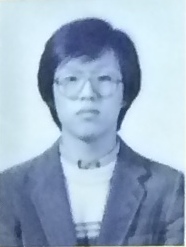Park Jong-chul[a] (Korean: 박종철; April 1, 1965 – January 14, 1987[1]) was a South Korean democracy movement activist. His death by torture was a key factor in sparking the June Democratic Struggle, which led to the democratization of South Korea.
Park Jong-chul | |
|---|---|
 | |
| Born | April 1, 1965 |
| Died | January 14, 1987 (aged 21)[1] |
| Cause of death | Asphyxiation by torture in the form of water cure[1] |
| Burial place | Moran Park, Hwado-eup Namyangju, Gyeonggi-do, South Korea 37°38′45.2″N 127°19′14.4″E |
| Nationality | South Korean |
| Alma mater | Seoul National University |
| Occupation | University Student |
| Korean name | |
| Hangul | 박종철 |
| Hanja | 朴鐘哲 |
| Revised Romanization | Bak Jongcheol |
| McCune–Reischauer | Pak Chongch'ŏl |
Biography
In the 1980s, as president of the student council in the linguistics department of Seoul National University, he was one of activists in universities struggling against Chun Doo-hwan's dictatorship and the aftermath of the 1980 Gwangju Massacre. Detained during an investigation into such activities, Park refused to confess the whereabouts of one of his fellow activists. During the interrogation, authorities used waterboarding techniques to torture him,[2] eventually leading to his death on 14 January.
Information surrounding the events of Park's death was initially suppressed. His death by torture helped spark the June Democracy Movement of 1987.
His death, including the events of its immediate aftermath, was subject of the movie 1987: When the Day Comes.
See also
Notes
- In this Korean name, the family name is Park.
References
External links
Wikiwand in your browser!
Seamless Wikipedia browsing. On steroids.
Every time you click a link to Wikipedia, Wiktionary or Wikiquote in your browser's search results, it will show the modern Wikiwand interface.
Wikiwand extension is a five stars, simple, with minimum permission required to keep your browsing private, safe and transparent.